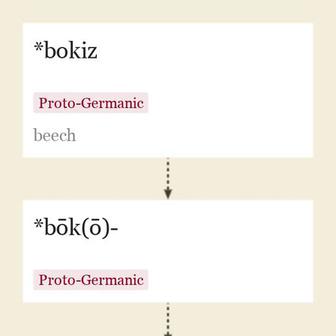horn-book n.
also hornbook, 1580s, teaching tool consisting of a page with the alphabet, numerals, etc. written on it, fixed to a frame, and covered with transparent horn;" from horn (n.) + book (n.).
Entries linking to horn-book
Old English horn "
Late 14c. as "
Symbolic of cuckoldry since mid-15c. (the victim was fancied to grow one on his head). The image is widespread in Europe and perhaps as old as ancient Greece. The German linguist Hermann Dunger ('Hörner Aufsetzen' und 'Hahnrei', "

Middle English bok, from Old English boc "
Latin and Sanskrit also have words for "
The sense gradually narrowed by early Middle English to "
The use of books or written charters was introduced in Anglo-Saxon times by the ecclesiastics, as affording more permanent and satisfactory evidence of a grant or conveyance of land than the symbolical or actual delivery of possession before witnesses, which was the method then in vogue. [Century Dictionary]
From c. 1200 as "
updated on October 10, 2017